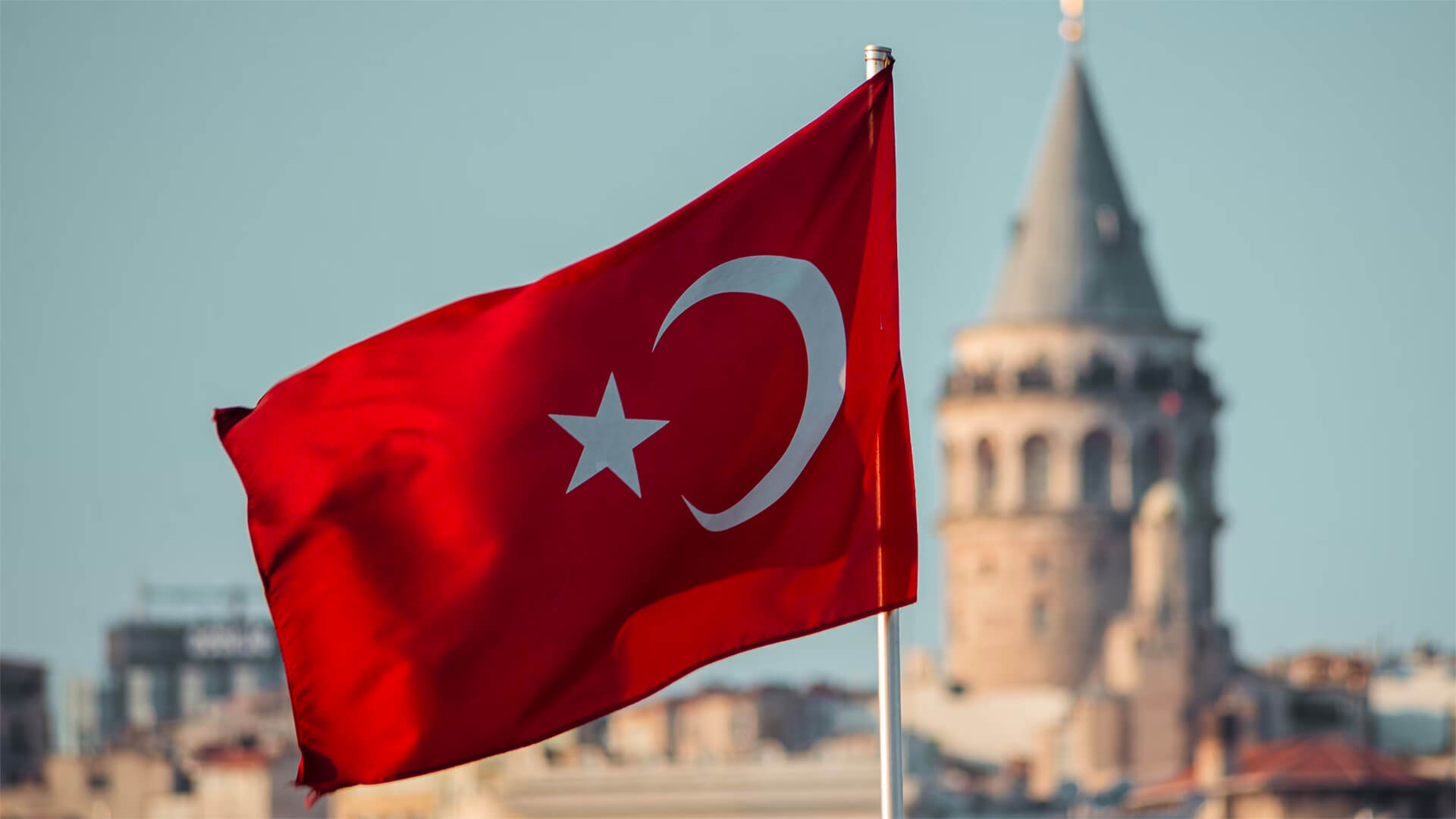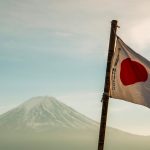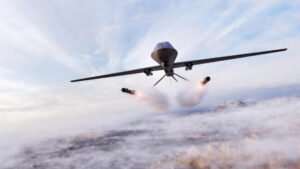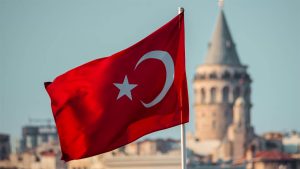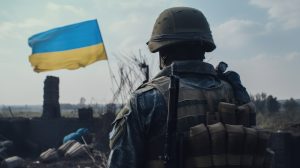Despite the threat to Turkey’s national security that a Russian victory in the Ukraine War poses, the Turks are taking a far different approach to international affairs than Japan…and it makes a lot of sense when you take a broad look at Turkey’s geopolitical situation.
Unlike Japan, Turkey doesn’t need to buddy up with the US to ensure a bright future. Turkey has some of the strongest demographics in G20 — thanks to high birth rates and a young population. They are blessed geographically — a land invasion would be futile since they are located on a peninsula and they fall at the crossroads of Europe, Africa, and Asia, so trade isn’t an issue.
Turkey’s main concern with the Ukraine War is that if Russia wins, they will likely head after the Bessarabian Gap next and jeopardize the Turkish Straits — a.k.a the heartline of the Turkish economy. This is one of the main reasons Turkey has stuck with NATO, as they are patrolling these areas.
Outside of the protections offered by NATO, Turkey is broadly self-sufficient. Even if they left NATO, they still have a massive army to protect themselves. Thanks to recent industrialization efforts, they are a high-value-add society, they produce much of the necessary foodstuffs to feed their population, and their energy needs can be imported from several different places.
While the Turks don’t want to see the Russians win, they know the value of keeping them around. Until recently, Turkey was profiting off Russia by providing them with a number of materials on the secondary markets and access to the US/EU financial markets. NATO has recently cracked down on this issue, but it shows that Turkey is navigating this situation with one goal in mind: to position itself as a significant world player for years to come.
Prefer to read the transcript of the video? Click here
Here at Zeihan On Geopolitics we select a single charity to sponsor. We have two criteria:
First, we look across the world and use our skill sets to identify where the needs are most acute. Second, we look for an institution with preexisting networks for both materials gathering and aid distribution. That way we know every cent of our donation is not simply going directly to where help is needed most, but our donations serve as a force multiplier for a system already in existence. Then we give what we can.
Today, our chosen charity is a group called Medshare, which provides emergency medical services to communities in need, with a very heavy emphasis on locations facing acute crises. Medshare operates right in the thick of it. Until future notice, every cent we earn from every book we sell in every format through every retailer is going to Medshare’s Ukraine fund.
And then there’s you.
Our newsletters and videologues are not only free, they will always be free. We also will never share your contact information with anyone. All we ask is that if you find one of our releases in any way useful, that you make a donation to Medshare. Over one third of Ukraine’s pre-war population has either been forced from their homes, kidnapped and shipped to Russia, or is trying to survive in occupied lands. This is our way to help who we can. Please, join us.
CLICK HERE TO SUPPORT MEDSHARE’S UKRAINE FUND
CLICK HERE TO SUPPORT MEDSHARE’S EFFORTS GLOBALLY
TRANSCIPT
Hey everybody. Peter Zeihan here coming to you from the tail end of the Routeburn Track on the way to the divide. Sorry, no scenic highway. It started raining last night and hasn’t let up and the view is well….white and trees. Anyway, yesterday we talked a little bit about how the Japanese have realized that they’re never going to be a singular great power again and so have found a way to partner up with the country that is most likely to either encourage them or dislodge them and that’s the United States. And today we’re going to talk about Turkey in kind of the same context.
Now, unlike the Japanese, who have admitted that they will never be the dominant naval power in the Pacific and never the economic power of the Pacific again. The Turks are nowhere near that stage and with good reason. Their geography is different. Their economic structure is different. Their demographics are different. Demographically, they are the youngest of the G20 countries. With the exception of Argentina. And they’ve got the highest birthrate again, aside from Argentina, which gives them a lot of opportunities moving forward. Meaning that if current aging and urbanization trends continue, they’re not going to face a German style situation within the next 50 years. So you know, they’ve got the most valuable of commodities…time. Second, they’re on a peninsula, so it is relatively difficult to attack the Turkish space by land and to make sure that no one tries. Turkey today maintains the second largest army in NATO. So unlike the Japanese, who were overwhelmed back in the forties by American naval power, there’s really no one even on the horizon who could potentially challenge the Turks at home. As to their neighborhood, Turkish interests are a lot more varied and there are a lot more questionable calls. I mean, the Japanese, they’re a series of islands with very few resources, so they have to go out and there’s certain things that they have to achieve in terms of security and economic control or at least influence in the Korean Peninsula and Taiwan, and the Chinese mainland and Southeast Asia and all the sea lanes going across the Pacific. They really have to have it all if they’re going to succeed, and they know they can only get that all hand-in-glove with the United States. Well, the Turkish situation requires a lot more thought, not because there’s “a” right answer, but because there’s many potential opportunities. They have interests in the Caucuses with Armenia, Azerbaijan and Georgia. They have interests in northern Iraq and the Levant, which involves the Israelis, the eastern Mediterranean, which of course involves the Egyptians, the Aegean Sea with the Greeks, and most importantly, in my opinion, in the Eastern Balkans, with Bulgaria and Romania. And that’s where today’s conversation kind of takes us.
There are plenty of hot takes out there, including for myself, on how this war may or may not roll out. We’re talking about Ukraine now. But if the Russians are successful and honestly, still by the numbers, this is still Russia’s war to lose. Ukraine will in time fall. And the place that the Russians are most likely to turn to next is a zone of territory called the Bessarabian Gap, which makes up what is today’s Moldova and a northeastern slice of Romania. Roughly 20% of Romania’s territory. Because the Russians see the Bessarabian Gap as one of the primary invasion zones that access the Russian interior and they want to concentrate a military footprint in that zone to make sure that no one can try. Well, the Turks see it basically the same way just from the other side. A number of assaults that have come for Istanbul over the millennia have gone through that same gap. Right now, the Turks kind of have the best of both worlds. It’s NATO’s territory. And so it has NATO’s security guarantee, especially the Romanian chunk. But the Turks don’t have to plug it themselves. So they’re a big beneficiary, almost incidentally, from the current security order. But if the Russians were to take that, then the Turkish heartland, the Turkish capital, the Turkish Straits, would all be directly vulnerable to Russian power. And the Turks cannot tolerate that. So the primary reason that the Turks are still remaining engaged in the NATO alliance, at least for the moment, is because of that promise of a security block in that zone. And if, for whatever reason, the Americans back away from Ukraine, the Turks would have no choice but to step in directly and partner with Romania. And forward position military forces in the gap to make sure that the Russians can’t try anything cute.
But on the broader issue of power, Turkey is just in a better position than the Japanese are. We’ve already talked about demographics in terms of geography. It’s not like they’re kind of dangling at the end of Asia. So they need a globe spanning Navy to access raw materials and resources markets. They’re at the crossroads of Europe and Africa and Asia. So as long as there is trade, whether it is by water or by land, the Turks have some cards to play. In addition, whereas the Japanese have bit by bit deindustrialized and moved into services and high tech. Over the last 30 years, the Turks have been rapidly industrializing, in part to serve as a kind of a supply depot and a middle manufacturing zone for the Europeans, much in the way that Mexico does with the United States. And in terms of value add, if you compare the cost of the stuff that goes in versus the cost of the stuff that comes out, Turkey is one of the most high value added economies in the world already. Turkey is broadly self-sufficient in all the foodstuffs that it produces for itself and never kind of got into this craze that a lot of countries have, that they have to have organic avocados that are out of season. So even if global trade shut down tomorrow, the trade system would be broadly okay. And for energy, they may be a significant importer of everything but coal. But the places that they have the options of importing from are many. Today, they’re getting a lot of their natural gas and oil from Russia, but tomorrow could very easily be northern Iraq or Azerbaijan. In fact, several of those pipelines are already in place, and it’s only been some political squabbling that has kept them from running at full capacity. So nothing like a blackout to motivate.
And so what we’re seeing in terms of how the Turks versus the Japanese are dealing with the Ukraine war, the Japanese have signed on to the American led system. And so they are going in up to their armpits with helping out the Ukrainians. However, is appropriate for their own cultural MAU. The Turks have been a lot more circumspect. They definitely, definitely, definitely don’t want the Russians to win, but they see the advantage of not having this blow up and have the Russians just disappear altogether, especially if you think, like I do, that ultimately this is Russia’s war to win. Now, to that end, the Turks have been very active in not so much bypassing the sanctions that are on Russia, but providing the Russians with ways to get around them. So there are a lot of things that are under secondary sanction restriction like semiconductors that the Turks have been importing four or five times as much as they normally do, and then they’re just selling them on to the Russians. There’s a very strong mercantile culture in Turkey. If you’re familiar with Star Trek, this is basically a nation of Ferengi when it comes to trade. There’s also been a number of banks within the Turkish space that have helped the Russians access the dollar and the euro market because the Russians discovered early on in the conflict that Yuan aren’t worth the paper that they were printed on. Basically, if you buy Yuan assets, you’re stuck with Yuan because the Chinese don’t want it back. They find their own currency borderline useless. So that little mistake cost the Russians a few hundred billion dollars.
Anyway what’s changed in the last couple of weeks is that the two things, number one, pressure from Europe and the United States on the Turks to push stricter compliance with the secondary sanctions regime has been fairly successful and the Turkish government is now shutting down a lot of these middlemen that allow banned goods into the Russian space. We’ve already seen semiconductors from things like washing machines end up in Russian cruise missiles. So it’s clear that the Russians have been working to establish an alternate supply system, and anything that chokes that off is going to force them to start over. Second, the banking issue, the federal government in the United States has specifically warned the Turks, if they don’t cut that out, that they risk pulling under the sanctions themselves. And that didn’t require a lot of prodding from the Turkish government to the Turkish banks were like okay, message sent, you’re serious about this and they kind of shut down that window as it was.
The bottom line here is that the Turks have a little bit more wiggle room, despite the fact that they are more exposed to the security issues that are going on in Ukraine. And because they see themselves in the long run as having options to great power hood, which is an accurate assessment, they don’t want to just follow blindly in the way that the Japanese are willing to. This is a country that in the long term is unlikely to be part of the American Alliance Network because it’s going to lead its own. And who all gets involved in that will in many ways be dependent upon how the war in Ukraine proceeds from this point forward. Because if the Russians do prove to be successful, well, then Bulgaria and Romania are going to be the first countries to sign up willingly for a Turkish centric defense system.
Alright. That’s it for me. I’ll see you guys in drier weather.
Talk to you guys later. Bye.

